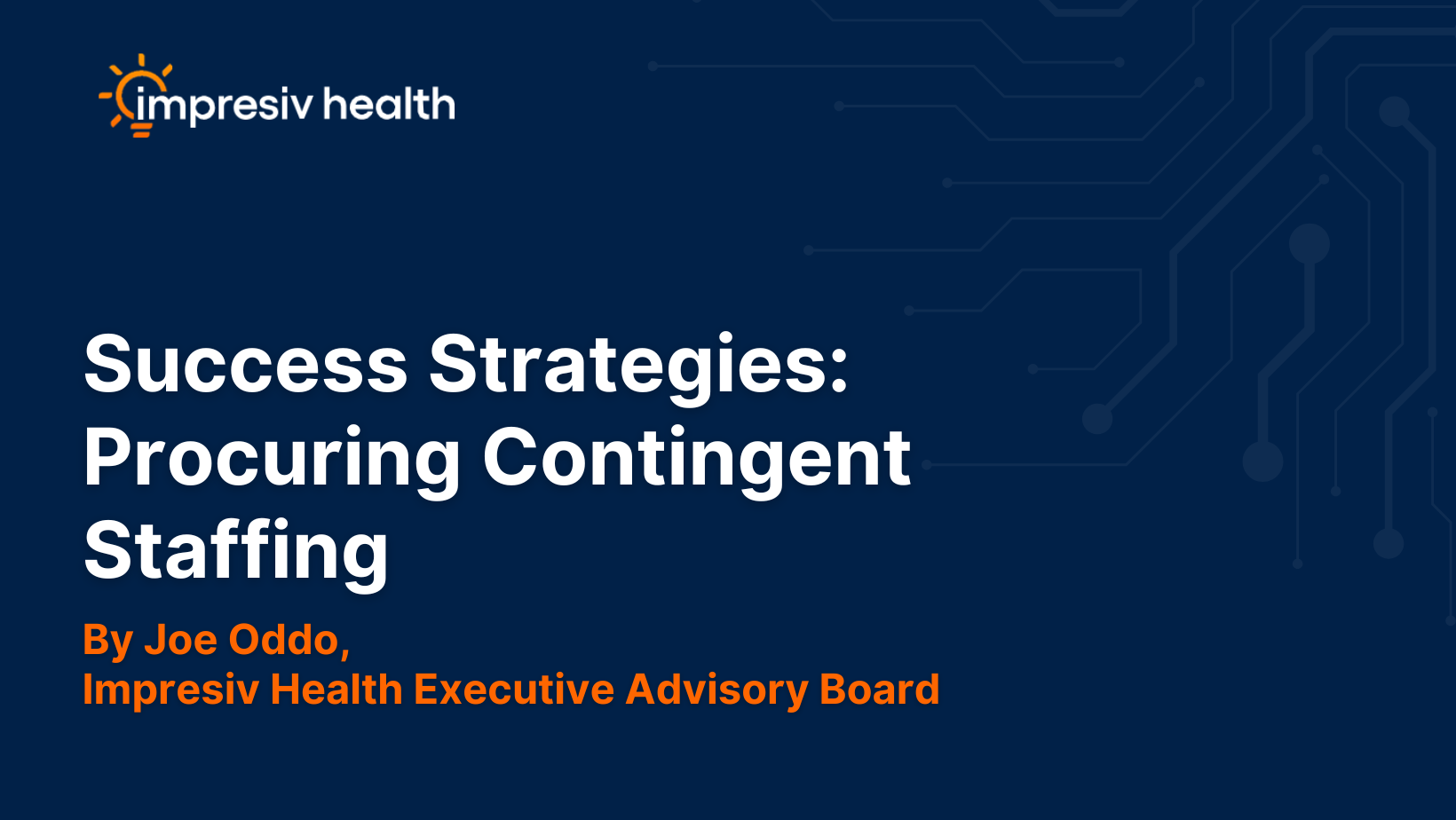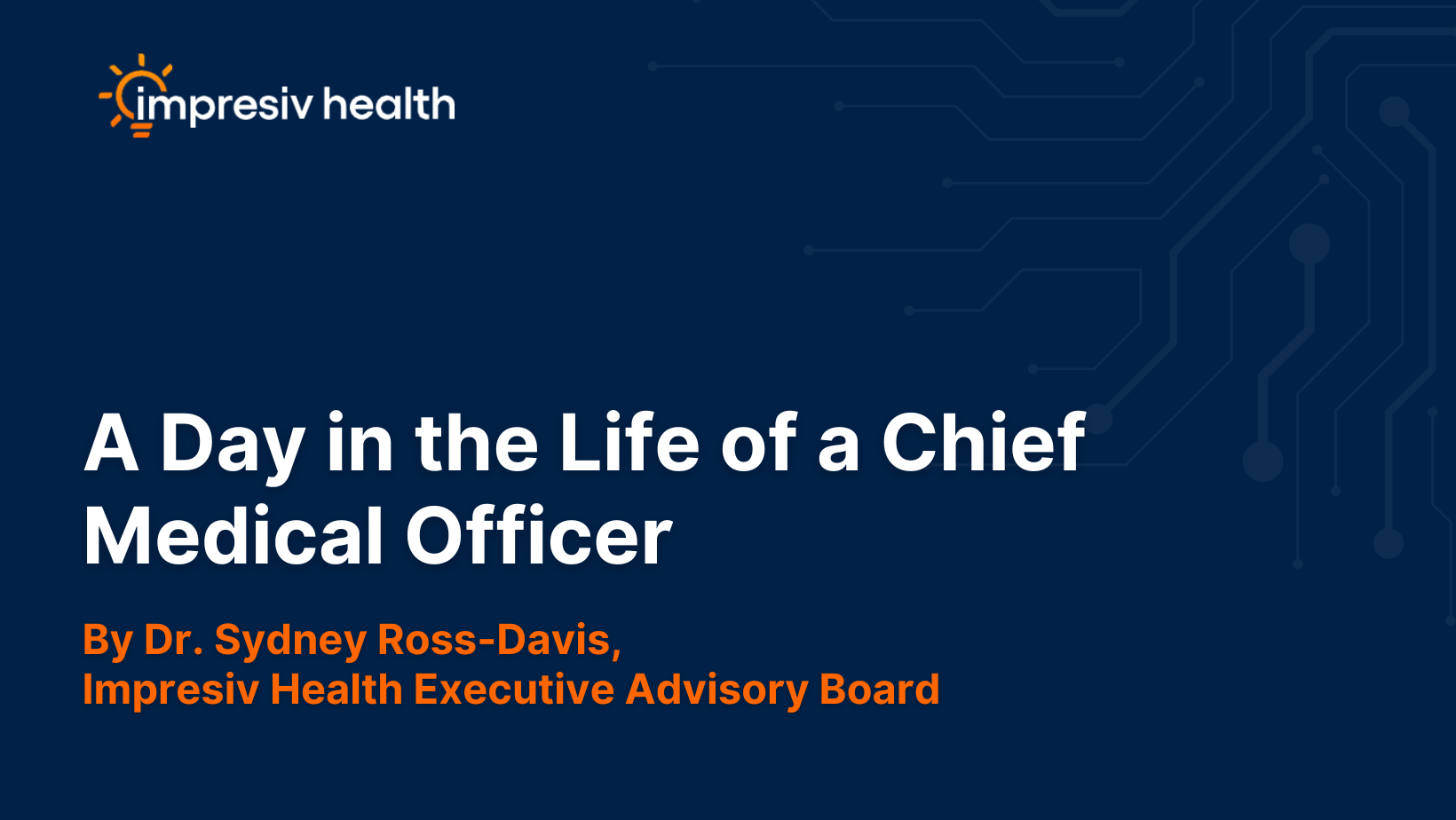Shared by Joe Oddo, Former CIO of TriWest HealthCare and Member of the Impresiv Health Executive Advisory Board
Key point to remember: Top teams make top leaders and coaches successful.
I cannot emphasize this point enough to CEOs / CIOs / CTOs / CISOs that I have come in contact with over the years.
When I give CIO conference leadership talks, I use this example and ask the audience directly:
"Who knows who Bill Bellichick is?"
Hands go up - yes, Bill Bellichick - who some consider the greatest NFL coach of all time with the New England Patriots.
I then ask "Who knows who Nick Saban is?
Hands go up - yes, Nick Saban, one of the greatest NCAA / NFL coaches of all time.
Then I remind the audience - "Did you know they coached together for 4 years with the Cleveland Browns football team - had a losing record and got fired?"
I then show pictures of Belichick and Saban coaching the Cleveland Browns. Nick Saban called it the worst 4 years of his life.
Were they bad coaches?
No...they had bad football team personnel and could not recover fast enough. Their focus needed to be on building a top team.
Which leads to my point: your focus needs to be on building a top team.
So, knowing that top teams make leaders and coaches successful, what are some key strategies to build a top team, given the fixed budgets that most healthcare organizations are operating within today?
Strategy #1: Senior-Level Leader Workforce – Are fractional team members possible?
Consider bringing in some fractional expertise to build out guidance and direction for your organization - rather than always making a full-time hire.
Rationale: Senior resources are very expensive, and you may only need this expertise for strategy or guidance or a specific, finite project initiative. Experienced fractional resources can come in and quickly build a strategy and/or implement a new initiative and then just monitor with part-time hours.
Examples: Enterprise Architect - a fractional role that may be needed to build-out and guide the next-gen technology/infrastructure.
Clinical Project Manager - a fractional role that could assist with clinical health care project organization.
Marketing Campaign Director - a fractional role could provide your organization with the campaign blueprint to market your products/services and then monitor results.
Strategy #2: Mid-level Experienced Workforce - Always Consider Productivity and Mentorship vs. Cost
Consider how much productivity an experienced worker can bring to a role, not just if they can barely “meet” the requirements. Also, the ability of the experienced person to provide proper mentorship to other less experienced staff should be considered.
Rationale:
The mid-level is where you need very productive personnel to carry out the strategies and initiatives outlined by the senior leadership. You may even consider contingent staff here for some roles to get the right experience within your team.
Examples:
Thinking back to when I was CIO of a healthcare organization – my staff would always ask for guidance on hiring; it would go something like this:
“We have one candidate who has very superior abilities and has even done this before, is probably twice as productive – but they want $5,000 more per year. Then we have another candidate who barely meets the requirements, but we could save $5,000 on the role. Who should we hire?"
If we want to put together the best team, then we want to hire the person who had twice the productivity. Especially in information technology roles, it is possible to hire a person who is 2-5 times more productive than the average worker. You can also hire in the opposite direction, where the average employee is only half as productive and not very engaged with the organization.
By hiring a more experienced resource with more vital skills, you also solve another problem: providing the proper mentorship for the next strategic hires below.
Strategy #3: Entry-Level Workforce – or Where we find our next generation “rock star” employees
Consider sourcing your own next generation of talent from:
- Ongoing internships - growing talent from the ground up
- Partnering with Masters or Honors level programs at top colleges
- Seeking out veteran military talent
Rationale:
At the entry level, you can develop your own talent that learns your organization’s culture from the ground up and maximize your budget, because these workers are still learning the industry and the roles. These personnel are traditionally paired with experienced, productive, and engaged mid-level employees, like those we discussed in Strategy #2. In my experience, the entry-level workforce jumps up to productivity and capabilities within 2-3 years and then grows to become your next-generation rock star employees!
Examples:
Interns: I’ve always attempted to hire as many Information Technology interns as Human Resources would allow me to bring in. This becomes a learning experience for the interns and entry levels – I’ve also found this brings a higher level of energy to the existing staff. These personnel are found with relationships at local colleges and universities. I've also placed high importance on the search for Honors college interns or entry-level candidates. The Honors college candidates tend to be highly intelligent and have a great ability to absorb things quickly. I still remember recommending to one of my managers that we consider a person in the Western Michigan University Honors College. This woman, a few years later, is one of the top newly promoted managers at the health plan.
Entry Level – Masters Candidates:
I have always had good luck in hiring Masters level candidates with healthcare degrees from top innovative universities. In Michigan, we hired people coming out of the University of Michigan – Dearborn campus with Health Care Information Technology degrees – they were able to hit the ground running when paired with experienced mentors.
I’ve also had great luck here in Arizona with Arizona State University, U of Arizona, and Grand Canyon University Masters, where we've sourced many entry-level hires for our health plan.
Military Veterans
Our organization was proud to be able to hire military veterans after their USA military service. These men and women from our military have a very strong work ethic and who are very engaged in our mission. They quickly become very productive employees; I cannot recommend them enough!
What's Next
I hope you consider these three successful strategies for your long-term hiring strategy.
If you have any questions, desire more details, or need assistance building a successful organization, please email me here.
Happy Team Building within Budget!
Get in touch with Joe Oddo, part of our Executive Advisory Board: joddo@impresivhealth.com

-1.png)




